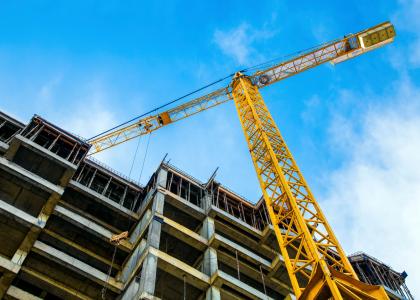Washington, DC — Retrofitting buildings to reduce their energy use is one of the most powerful tools to reduce carbon emissions, yet at current rates, most offices and homes will not be retrofitted for decades or even centuries, a new report warns. The American Council for an Energy-Efficient Economy (ACEEE) report, released Monday, calls for cities and states to mandate retrofits of inefficient buildings by requiring them to meet standards that cap their energy use or carbon emissions—a policy that 10 leading jurisdictions have adopted, including many in just the past 18 months.
ACEEE finds that building performance standards could greatly reduce the nearly one-third of U.S. greenhouse gas emissions that come from buildings. If applied to two-thirds of existing buildings, these standards could reduce carbon emissions in 2050 by more than the current annual emissions from all buildings, power plants, and vehicles in New York state.
“We have lots of good voluntary programs that help building owners improve energy efficiency, but the truth is they’re just not nearly enough when you look at the climate math,” said Steven Nadel, report co-author and executive director of ACEEE. “Most buildings today are going to be in use for decades to come. If we don’t put any limits on the carbon they’re responsible for, we’ll be locking in terrible climate impacts. Building performance standards are an effective response because policymakers set overall limits and let the building owners decide which upgrades they’re going to implement to meet them.”
“Burning fossil fuels to provide heat and hot water to homes and buildings is not only bad for the climate, it pollutes the air and threatens public health. As cities, counties, and states look for significant ways to address the climate crisis, tackling inefficient buildings is a must,” said Antha Williams, global head of environmental programs at Bloomberg Philanthropies, a partner supporting the report. “The good news is that we are seeing cities across the country take meaningful action by setting ambitious energy standards for buildings and working with owners to help achieve them. We look forward to seeing more city council members and mayors across the country stepping up to implement these types of policies as a major part of their climate plans.”
In the past 18 months, Washington, D.C., New York City, Washington state, and St. Louis have enacted building performance standards. Such standards are also in place in Boulder (Colorado), Reno (Nevada), Tokyo, France, the Netherlands and England/Wales. Similar proposals are under consideration in Boston, Colorado, and Montgomery County, Maryland, among other places.
The policies typically require existing buildings larger than a specified size to meet a certain energy efficiency standard, based on either energy use or greenhouse gas emissions per square foot of space. This effectively requires owners of less-efficient buildings to make efficiency upgrades by certain deadlines, generally several years in the future. Building owners can use any combination of efficiency upgrades to meet the standard, such as improved heating and cooling, new insulation, upgraded windows, or a host of other measures. Some of the standards apply only to rental properties and a few of the European standards apply to homes.
The report notes wide variation among existing policies and calls for policymakers considering building performance standards to consult local stakeholders in developing policies to meet local needs. It calls on jurisdictions that set such policies to devote resources to educating building owners and managers, providing technical assistance, offering financing and incentives, and ensuring effective enforcement.


